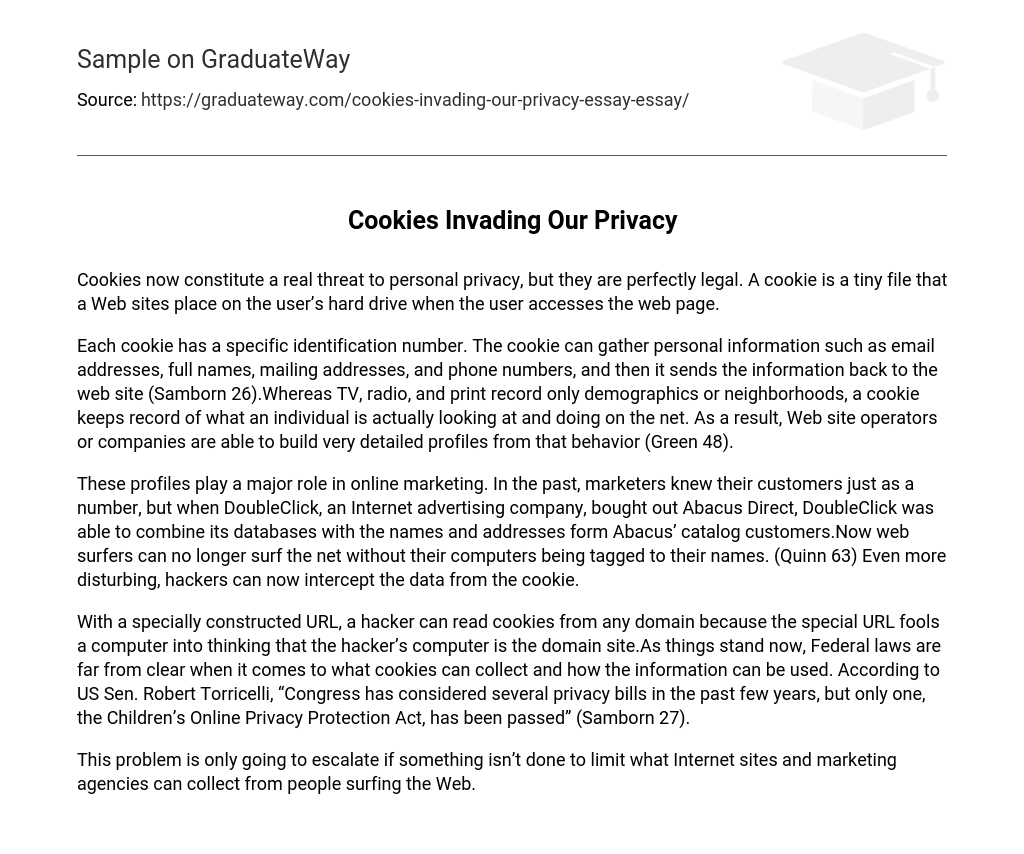Cookies are legal, although they pose a genuine risk to personal privacy. They consist of small files that websites place on a user’s hard drive upon accessing their web page.
Each cookie has a unique identification number and can collect personal information like email addresses, full names, mailing addresses, and phone numbers, which it then sends back to the website (Samborn 26). Unlike TV, radio, and print, which only record demographics or neighborhoods, cookies track an individual’s online activities and interests. This allows web operators and companies to create highly detailed profiles based on user behavior (Green 48).
These profiles have a significant impact on online marketing. Previously, marketers only had information about their customers as a numerical value. However, after the acquisition of Abacus Direct by DoubleClick, an Internet advertising company, DoubleClick managed to merge its databases with the names and addresses of Abacus’ catalog customers. As a result, web surfers are now unable to browse the internet without their computers being associated with their names. (Quinn 63) Additionally, there is increased concern as hackers have the ability to intercept data from the cookie.
Using a specially constructed URL, a computer can be tricked into thinking that the hacker’s computer is the domain site, allowing the hacker to read cookies from any domain. Currently, Federal laws regarding what information cookies can collect and how it can be used are not well-defined. US Sen. Robert Torricelli has stated that Congress has examined several privacy bills in recent years, but only the Children’s Online Privacy Protection Act has been enacted (Samborn 27).
This issue will continue to worsen unless measures are taken to restrict the amount of information that Internet sites and marketing agencies can gather from individuals browsing the internet.





